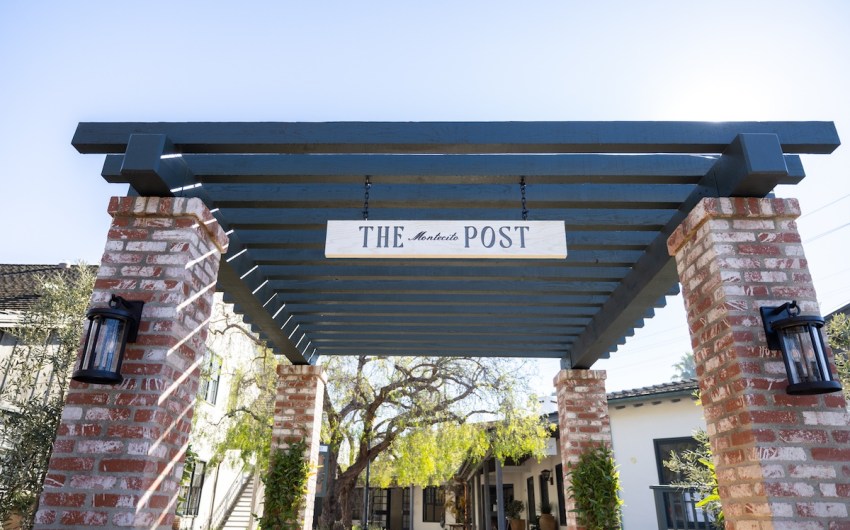Can a Sales-Tax Measure Solve Santa Barbara’s Budget Woes?
Voters to Decide on a Half-Cent Sales Tax That Could Net City $15.6 Million Annually

As the city of Santa Barbara struggles to erase its projected $7.1 million budget deficit — a number that may actually come out closer to $10 million by the time the budget is finalized — city leadership is searching for a way to stop expenses from growing faster than revenues.
That antidote may be a half-cent sales tax. If approved by City Council on June 11, it would appear as a yes/no ballot measure in the upcoming November 2024 election. Such a tax increase could net the city an estimated $15.6 million a year, revenue that could be used to fund public safety, homelessness resources, and affordable housing.
City Finance Director Keith DeMartini laid out the proposal at Tuesday’s City Council meeting. It was the result of more than two years of research, 22 community meetings, six town halls, and two public polls in order to find effective revenue streams and to gauge community interest in the half-cent increase, which would raise the city’s sales-tax rate from 8.75 percent to 9.25 percent.
The results of the polls, conducted in May 2023 and May 2024, found that six out of 10 voters would vote “yes” to the tax if it went toward housing and public services. The polling also showed strong support among all districts and income levels, with younger and lower-income residents being even more likely to vote for the measure.
DeMartini said the city explored more than 70 options for revenues. According to the city’s projections over the next few years, the growing costs of doing business are expected to outpace the slow revenue growth widening the city deficit by as much as $13 million a year. In 2024, the city’s deficit was $2.7 million, up from $1.7 million in 2023.

“It’s becoming more and more expensive to operate,” DeMartini said.
These gloomy budget forecasts have forced the city to not fill vacant positions, to put entire projects on hold, and to reduce the scope of projects and services.
In addition to the sales tax, the city looked into several other options, rating each based on revenue level, longevity, legal challenges, and how easily they could be implemented. Other sources, such as a property transfer tax, vacancy tax, or increase on hotel taxes, could not bring in the steady revenue stream that a sales tax could offer, DeMartini said.
Sales tax could net as much as $15.6 million annually through thousands of smaller transactions, and could bring in consistent income, assuming the city avoids a sudden recession. Other options such as a vacancy tax, would be unpredictable, and even an increase in Transient Occupancy Tax — such as the one being proposed at the county level — would only net a few million dollars a year.
On Tuesday, almost every member of the council expressed support for putting the measure on the ballot and letting voters decide, even Councilmember Meagan Harmon.
As one of three councilmembers who sits on the Finance Committee, Harmon had previously expressed her reluctance to support what she called a “regressive sales tax,” but during the council session Tuesday, she said that while her position still hasn’t changed, she would support moving forward and allow the voters to decide for themselves.
“Despite my position, I will be voting to put it on the ballot,” Harmon said. “And I do hope it passes, because we need the revenue.”

The only councilmember vehemently opposed to the measure was Alejandra Gutierrez, who said the “timing doesn’t feel good” for a sales tax, though she said she understood that it would likely move forward with majority council approval.
Much of the council discussion surrounded the funding priorities, with Councilmember Kristen Sneddon saying that she preferred if the language on the ballot reflected that the community and council wanted the money to go toward affordable housing. While several councilmembers agreed that housing should be stated as a top priority, the council agreed to leave the language as is — with 9-1-1 and public safety listed first — because that was the wording that performed well during polling.
In a 6-1 vote, with Gutierrez opposed, the council agreed to take the next step and direct staff to return with a resolution and ordinance to be approved on June 11. As long as five of seven councilmembers approve, the measure would be placed on the November 2024 ballot where it would need at least 50 percent voter approval.
Premier Events
Sat, Dec 21
11:00 AM
Santa Barbara
Mosaic Makers Market – Holiday Weekend Market
Sun, Dec 22
11:00 AM
Santa Barbara
Mosaic Makers Market – Holiday Market Finale
Wed, Dec 25
6:00 PM
Santa Barbara
FREE Contra Dance X-mas Day💃Corwin & Grace band6-9
Sat, Dec 21
11:00 AM
Santa Barbara
Mosaic Makers Market – Holiday Weekend Market
Sat, Dec 21
12:00 PM
Santa Barbara
Gift Wrapping with Life Chronicles
Sat, Dec 21
2:00 PM
Santa Barbara
State Street Ballet’s 30th Anniversary Production of ‘The Nutcracker’
Sat, Dec 21
4:00 PM
Santa Barbara
Wine + Painting Workshop
Sat, Dec 21
5:00 PM
Santa Barbara
The Rhythm Industrial Complex: Live at Fox Wine Co
Sat, Dec 21
5:00 PM
Santa Barbara
LET IT GLOW Winter Solstice on State St.
Sat, Dec 21
5:15 PM
Santa Barbara
The Longest Night Memorial
Sat, Dec 21
5:30 PM
Santa Barbara
First United Methodist Church Living Nativity
Sat, Dec 21
6:00 PM
Santa Barbara
Captain Fatty’s Ugly Xmas Sweater Party
Sat, Dec 21
6:30 PM
Santa Barbara
Ugly Sweater Singles 30s and 40s Party!
Sat, Dec 21 11:00 AM
Santa Barbara
Mosaic Makers Market – Holiday Weekend Market
Sun, Dec 22 11:00 AM
Santa Barbara
Mosaic Makers Market – Holiday Market Finale
Wed, Dec 25 6:00 PM
Santa Barbara
FREE Contra Dance X-mas Day💃Corwin & Grace band6-9
Sat, Dec 21 11:00 AM
Santa Barbara
Mosaic Makers Market – Holiday Weekend Market
Sat, Dec 21 12:00 PM
Santa Barbara
Gift Wrapping with Life Chronicles
Sat, Dec 21 2:00 PM
Santa Barbara
State Street Ballet’s 30th Anniversary Production of ‘The Nutcracker’
Sat, Dec 21 4:00 PM
Santa Barbara
Wine + Painting Workshop
Sat, Dec 21 5:00 PM
Santa Barbara
The Rhythm Industrial Complex: Live at Fox Wine Co
Sat, Dec 21 5:00 PM
Santa Barbara
LET IT GLOW Winter Solstice on State St.
Sat, Dec 21 5:15 PM
Santa Barbara
The Longest Night Memorial
Sat, Dec 21 5:30 PM
Santa Barbara
First United Methodist Church Living Nativity
Sat, Dec 21 6:00 PM
Santa Barbara
Captain Fatty’s Ugly Xmas Sweater Party
Sat, Dec 21 6:30 PM
Santa Barbara


























You must be logged in to post a comment.